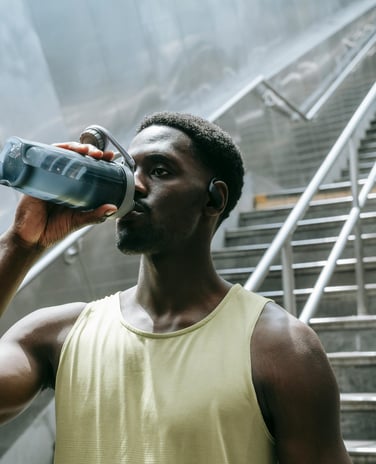How to Stay Healthy in Summer: Tips to Avoid Dehydration and Heatstroke
Summer is a time for fun and outdoor activities, but the heat can pose serious health risks if precautions aren’t taken. Learn how to protect yourself from dehydration and heatstroke with practical tips to stay cool, hydrated, and healthy during the hottest months of the year.
Health Is Life
1/5/20252 min read
How to Stay Healthy in Summer: Tips to Avoid Dehydration and Heatstroke
Summer brings longer days, sunshine, and outdoor fun, but it also comes with the challenge of staying safe in high temperatures. Dehydration and heatstroke are common risks during this season, especially for children, the elderly, and those engaging in physical activities. By following some simple precautions, you can enjoy the summer while keeping your health in check.
What Are Dehydration and Heatstroke?
Dehydration: Occurs when the body loses more fluids than it takes in, leading to symptoms like thirst, fatigue, dry skin, and dizziness.
Heatstroke: A severe condition caused by prolonged exposure to high temperatures, resulting in the body overheating. Symptoms include confusion, rapid heartbeat, nausea, and even loss of consciousness.
Both conditions can be dangerous if not addressed promptly.
Tips to Avoid Dehydration
Stay Hydrated: Drink plenty of water throughout the day, even if you don’t feel thirsty. Include hydrating foods like watermelon, cucumber, and oranges in your diet.
Limit Alcohol and Caffeine: These beverages can increase dehydration, so consume them in moderation.
Carry Water Everywhere: Always have a water bottle with you, especially during outdoor activities.
Set Hydration Reminders: Use apps or alarms to remind yourself to drink water regularly.
Tips to Prevent Heatstroke
Avoid Peak Sun Hours: Stay indoors or in shaded areas between 10 a.m. and 4 p.m., when the sun’s intensity is highest.
Wear Light Clothing: Choose loose, light-colored, and breathable fabrics to stay cool.
Use Sunscreen: Protect your skin with a broad-spectrum sunscreen to prevent burns and overheating.
Take Cool Showers: Lower your body temperature by taking cool showers or using wet towels.
Monitor Physical Activity: Reduce the intensity of workouts during hot weather and exercise during cooler times of the day.
Signs You Need to Be Aware Of
If you experience any of the following symptoms, take immediate action:
For Dehydration: Extreme thirst, dark urine, or dizziness.
For Heatstroke: High body temperature, confusion, nausea, or fainting.
Seek medical attention if symptoms persist or worsen.
Conclusion
Enjoying summer doesn’t have to come at the cost of your health. By staying hydrated, avoiding excessive sun exposure, and listening to your body, you can make the most of the season safely. Remember: Prevention is key to staying healthy and happy under the summer sun.
Sources:
Centers for Disease Control and Prevention (CDC)
www.cdc.govNational Institute on Aging (NIA)
www.nia.nih.govWorld Health Organization (WHO)
www.who.int




